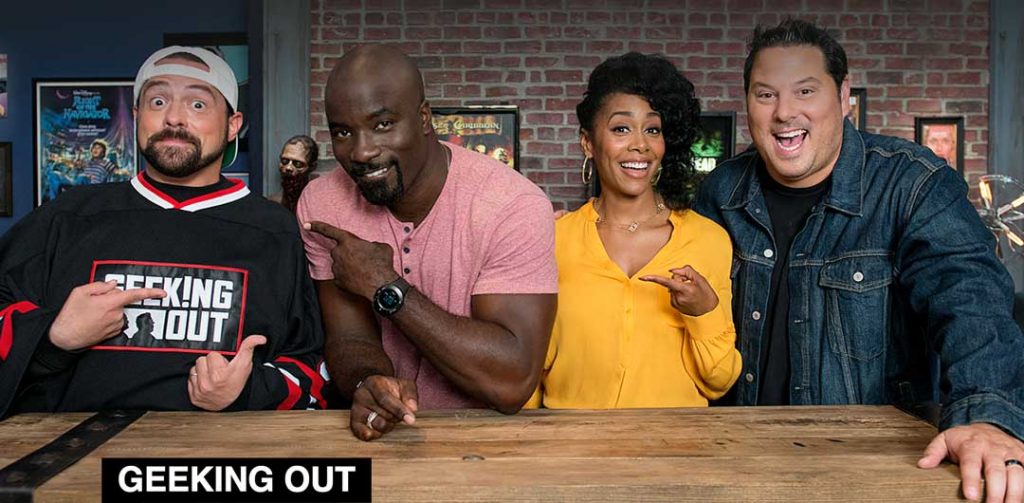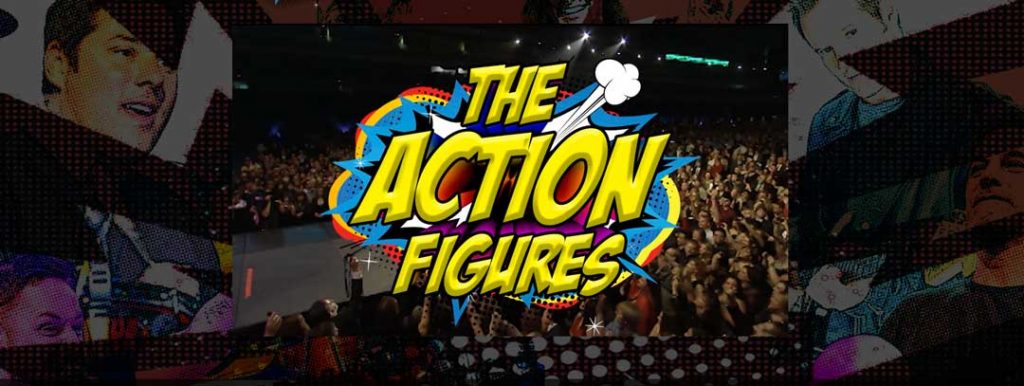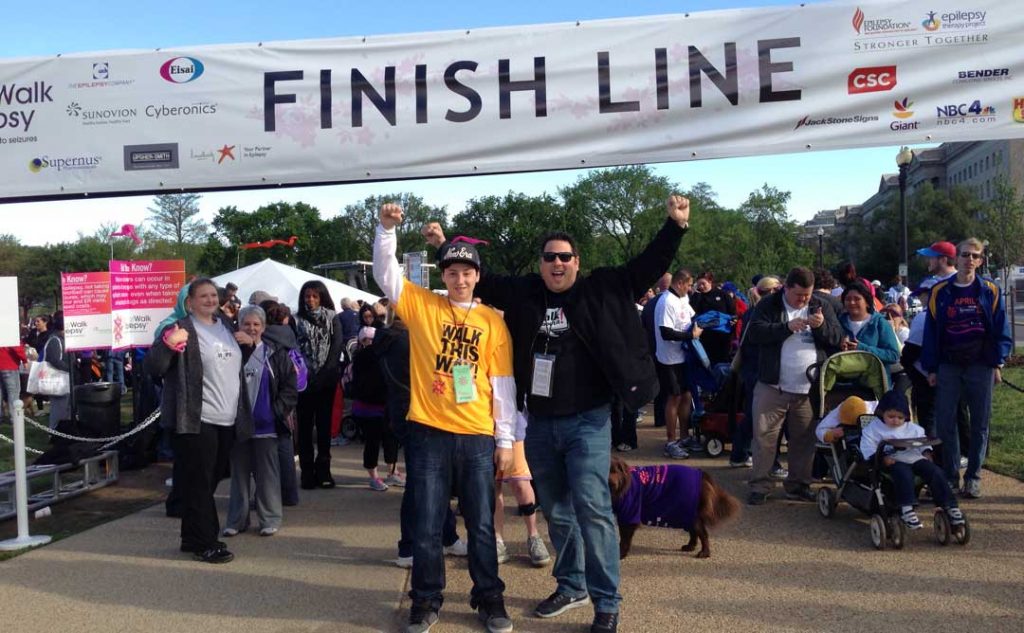Greg Grunberg is known for much more than his roles in “Heroes” and “Star Wars.” Beyond his acting, production company and playing in celebrity cover bands, Greg Grunberg dedicates time to his passion of building awareness of people with epilepsy and other disabilities through celebrity podcasts, videos and other creative productions. ABILITY’s Chet Cooper, connected with Grunberg in all his “busy-ness” to get into the details of his projects and what’s up next. It was a wonderful idea fest.
Chet Cooper: We’ll start off with epilepsy. I heard that you just got back from an event?
Greg Grunberg: I’ve been shooting a new series called “The Care Giver.” Meeting other caregivers. Right now, we’re doing epilepsy. It’s wonderful. No matter what, I always encourage people to talk about whatever they’re dealing with or if they’re caring for somebody who has any kind of an issue. You never know who you’re going to meet. No two situations are the same, but you’ll hopefully glean some information from somebody that could help you as a caregiver or help with the person you’re caring for. If people go to “The Care Giver Series” on YouTube and put my name in, Greg Grunberg, you’ll see a teaser trailer for it.
Cooper: Talk About It, is that part of your nonprofit?
Grunberg: No. This is something I can’t talk about yet until it launches. My site, and thank you for bringing it up, is called TalkAboutIt.org. I’ve had it for years. I started it with Ken Lowenberg from the Epilepsy Foundation and Phil Gattone, who was CEO, president of the foundation years ago.
The one thing I’ve found in this whole journey of being a parent with a child who has epilepsy is that people just don’t want to talk about it. There’s a stigma attached. It’s very scary to see someone have a seizure. The more we talk about it, the less ignorant, scared or intimidated when seeing someone have a seizure. From the basics, to what to do in case you see someone have a seizure to knowing what’s in the pipeline, how there’s so much hope out there for new medications, new therapies. Great doctors are working on anti-seizure treatments. I hate to use the term “It’s an exciting time,” but you know, it’s a hopeful time because of all the research that’s being done right now.
Talk About It is a place to share information. I enlisted the help of every celebrity and actor I’ve ever worked with to help me get the word out, along with doctors, clinicians, nurses, nurse practitioners, and scientists. I’m meeting and talking to so many wonderful people. I have a podcast called “Talk About It.” That’s all part of it as well. I encourage anybody, just go to Talk About It, check out what we’re doing there, and the podcast.
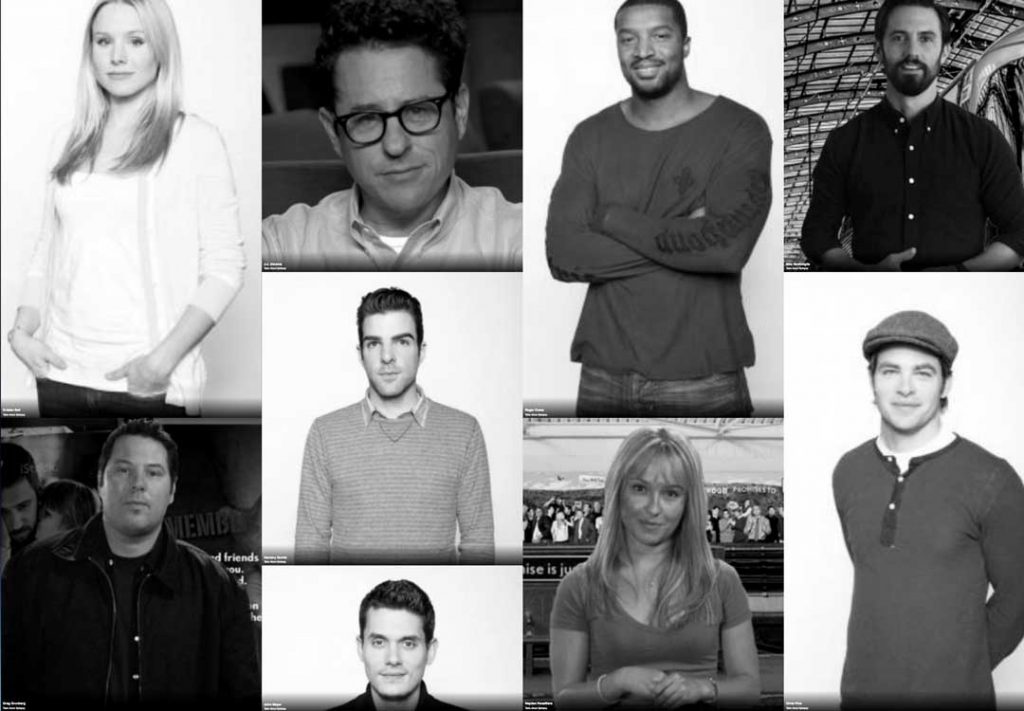
Cooper: You have great endorsements of people talking about it. The home page is a nice presentation of what’s happening behind the scenes. How many podcasts have you put out so far?
Grunberg: We’ve put out three or four episodes so far, and we have a bunch in the pipeline. Although Talk About It does have a splashy page, one thing I wanted to do was to have a celebrity face on there, but we want the information to come from real people knowledgeable on the topic. So, let’s say Jennifer Garner or Milo Ventimiglia ask a question, or J.J. Abrams talks about something. They ask a question that we’re all thinking in the community, about seizures or epilepsy, then they freeze, and we bring a doctor or an expert on-screen who answers that question.
It’s tough. It’s not called “TalkAboutEplepsy” because I want to eventually—and we’re doing that now–help a bunch of different causes. When you put a label on stuff, when it’s public awareness, it eliminates a lot of people. “Oh, I’m not affected by that,” whatever. Having all of these faces that you recognize will hopefully encourage people to go to the site. Because, again, I hope no one is affected by epilepsy, but over three million people have it in the U.S. alone. Their caregivers, friends, and families, that’s 20-plus, 30 million people out there who need to directly know what to do or be aware of what’s going on in the community. It affects a lot of people. I don’t mind “tricking” people to get to the site if they’re like, “Oh, look, there’s Hugh Laurie!” and then hopefully they poke around, and learn something along the way.
Cooper: That’s the logic we had over 30 years ago with the magazine. We have celebrities on the cover of the magazines. It was to hook the people in. “What does So-and-So have to do with it?” The title is “ABILITY it doesn’t say “disability.”
Grunberg: Right.
Cooper: Had you talked with Tony Coelho?
Grunberg: Yes, I’ve known Tony for a long time. He and I see each other usually every year. I was going to the National Epilepsy Walk on the Mall in DC, and I would see him all the time. I also went and spoke to some of our government officials on behalf of the ADA and on epilepsy as far as getting more NIH funding. That was years ago. I’ve known Tony for a long time. I consider him one of my heroes. He’s just incredible.
Cooper: Of course, without Tony, who knows if the ADA would have come together?
Grunberg: I know. And it seems that every year, every term, when new people come into office, they’re always looking for a way to cut here and cut there, and the ADA inevitably gets mentioned, although it shouldn’t, absolutely. That should be one of our cherished protections. Hopefully, that stays.
Cooper: You know what happened with the ADA AA?
Grunberg: No.
Cooper: There was a poor understanding by the courts of what disability means, and epilepsy kept coming up. One of the things the courts were saying, was “Look, you’re on meds. You haven’t had a seizure for a while, so therefore you’re not protected under the ADA. You no longer have a disability.” So, Congress passed the ADA AA which calls out specific conditions that were not well defined under the ADA.
Grunberg: Is that going to forever have to be updated?
Cooper: No, they defined it, and it’s now part of the ADA.
Grunberg: Oh, that’s great.
Cooper: Epilepsy was a part of that, and again, back to Tony. The courts kept chopping at the ADA and he helped Congress when they drafted the new language [ringing sound] If that’s for me, tell them I’m busy.
Grunberg: It’s Tony!
(Laughter)
Cooper: There he is again! He follows me everywhere! You’ve got so much I want to talk to you about, these issues that are close to both of our missions of how to change awareness.
Let’s talk quickly about Bandwagon. Tell me about how that happened.
Grunberg: Bandwagon is my production company. That came about years ago while I was acting and writing at the same time. I was acting, then I would have an idea, and hopefully pitch and have to partner with other production companies. Large or small projects. I don’t mind partnering, but some of them I don’t need to.
I started directing, and you need a production company behind you. I was working with so many great people. One of them is Brad Savage whom I’ve known forever. We partnered, have a studio in LA, and Bandwagon’s been around for many, many years. We produced a show with Kevin Smith that I did called “Geeking Out” on AMC. We have a bunch of other things, a few feature films.
It’s my production company, but it’s not in name only. A lot of actors have a production company, but they don’t do anything with it. I do a lot at the building and outside the building. We’re producing “The Care Giver” series as well. It’s a resource I created many, many years ago. It’s kind of like, if you build it, they will come. [laughs] A lot of people talk and talk and talk, but if you have something tangible, great people you’ve worked with, equipment, a building, a studio, it makes life so much easier. And people take you more seriously when you’re pitching an idea.
Cooper: Just like you said, a lot of celebs have a production company in name only, you have brick and mortar.
Grunberg: Yeah, it’s a lot more responsibility. It certainly would be a lot easier to just act–And I’ve been very fortunate for the last 30 years to have made a living doing that. But I have so much more that I want to do, and I’m a hands-on guy, a bit of a control freak, as we all are. So, if I want to shoot something, I just want to go out and shoot it. I don’t want to have to get somebody’s permission. And now, with technology, if you shoot something on the iPhone, it looks just as good as anything else. It really comes down to creativity and experience. Again, I love being able to have a tool box filled with all the toys that I need so that I can do what I want to do.
Also, there are so many friends of mine who are super-creative, and they didn’t pour their blood, sweat, tears, and money into something like this. And I love hooking them and going, “Look, I love working with you. Come aboard, do what you want, and let’s see what happens from there. If you want to continue working with me, here’s a great place to try out what you’re thinking about. Do a little sizzle for a TV show, record your podcast here.” We have a lot of live performances. My band plays there. It’s a lot of fun.
Cooper: That was another thing, music.
Grunberg: I’ve been playing the drums for as long as I can remember. I remember starting to play the drums right around 12, before my bar mitzvah at 13. I remember picking up the sticks with a friend of mine, and we played in the garage. So, I’ve always had that. But I never took formal lessons, so I was really good at playing cover tunes, listening to Tom Petty, some of my favorite—sometimes it was just stupid. I was one of those kids who would listen to Rush and think that I could emulate that. Or Stuart Copeland or something.
Over the years, I’ve played garage bands and stuff. And then I was asked to play at the House of Blues for a charity event when I was on “Felicity.” I played one song, a Cheap Trick song, and Macy Gray was there–There were a bunch of people there. And then “TV Guide” had an Emmy party, and they said, “Hey, that celebrity band you have, we’d love to hire them.” I was literally on the set of this small movie I was shooting–and I was like, “What are they talking about? I don’t have a celebrity band.” But I said, “Yeah, sure!” Because I’m thinking to myself, “I want to raise money for epilepsy, and I want to try to find a way, a sustainable model where I can have fun doing what I’m doing and I don’t have to ask people for money. I enjoy doing this and I can turn that into a company that would make money, the proceeds, I’d love to send to epilepsy.
So, I said, “Yeah!” and I put together this quick band. I was shooting an episode of “House,” believe it or not. I was a guest star, but I knew Hugh Laurie played keyboards and sang. So, I said, “Hey, Hugh, I played this thing at the House of Blues. Would you want to join me, just mess around?” He said, “Sure!” So, we rented a rehearsal space. I called James Denton, who was on “Desperate Housewives” at the time, and had asked me to do a table reading for a charity that he was doing. I said, “Hey, James, come join us!” “Sure!” He comes, I’m there, Bob Guiney, who was “Bob the Bachelor” at the time, great, great singing voice. Brad Savage, my producing partner, who was in my garage band for years. Chris Kelly, Barry Sama, all these guys. We started playing, and we sounded pretty good.
We played the post-Emmy party for “TV Guide”. They paid us so much money, and it all went to our various charities. It was so much fun, and I thought, “Man, this is really something!” Twelve years and millions of dollars later, we’re responsible for various charities. Epilepsy is mine.
I’m the drummer, and Scott Grimes is in the band, a major part of the band. We have two bands. One’s called Band from TV and the other’s called The Action Figures, where if you don’t have an action figure from a character you’ve played in a movie or TV series, you can’t be in the band.
Cooper: You’re outta here!
Grunberg: (laughs) You’re outta here! Sorry! It helps, maybe, because a lot of people are like, “I’d love to come up and sing,” but it’s not karaoke. We do a lot of rehearsal. We’re really good, in our heads.
(Laughter)
Cooper: We’re so good!
Grunberg: We have such a blast. It’s always a good time. Corporations have hired us for their parties. We’ve played a bunch of charity events. And now Comic-Cons.
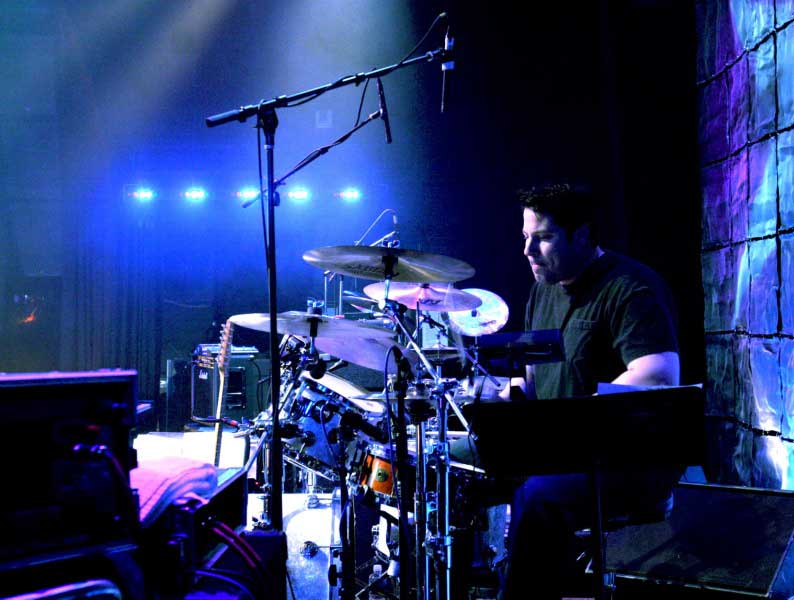
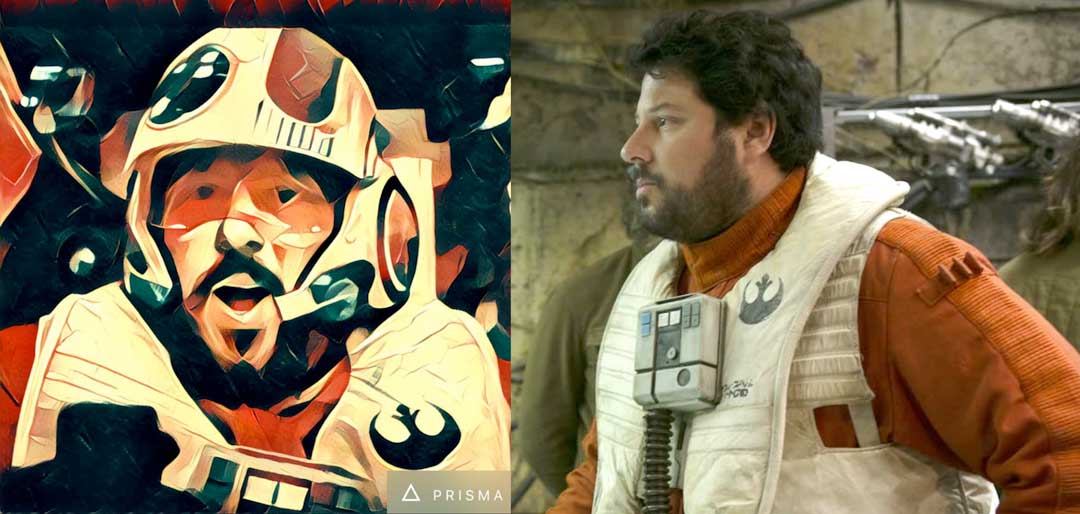
Cooper: Oh, especially with “Heroes”.
Grunberg: Yeah, with “Heroes”, “Star Wars”, “Star Trek”, all of that. It’s been great. So, I’ll say, “Yeah, I want to come, sing and do my normal thing, but I would love my band to play.” If they can afford it and we can plan it out! Let’s say a shoe company’s having a big launch party, hire us, and know immediately they get at least five or six real celebrity faces to come to their party. Great press. And we have fun! With the Action Figures, it’s a charity, or not, depending on the celebrity, but with the Band from TV is all charity. It’s been a real blast.
Cooper: So, they pay you in shoes? Is that what I heard?
Grunberg: (laughs) Exactly! I am the Imelda Marcos of celebrity cover bands.
Cooper: (laughs) If I could give you some advice to help raise money for other charities, I would probably come up with maybe an app idea, like a coupon app. What do you think about an idea like that?
Grunberg: You are so good at segues! Here’s what happened. You’re referring to the app that I created called Yowza!!, which is a mobile coupon app. It was one of the first. That came from a guy name Rick Yaeger and August Trometer, two really brilliant guys. One in design–he works for companies working on logos and things like that, graphic design–and August Trometer, who’s a coder and much more than that. It’s creative. He’s an actor, too. Just brilliant.
Those two guys contacted me and said, “Hey, we’re big fans. We’d love to create an app for the band. So, you could just download the app, and every month (donations) could go to the person’s charity who downloaded the app. We don’t care, as long as it generates charity dollars.” Apple does not have a model for that. There’s not one charity app in the App Store. Not one. And no one knows that. You look up “charity.” Nope.
Within certain apps you might be able to donate to your charity, like through Kickstarter. We wanted to create something similar. In the conversation, I said to them, being the entrepreneur that I am–very similar to my character years ago on “Felicity,”–I said, “I’ve always had this idea of creating an app where all of the coupons that you forgot at home were right there on your phone.” So, it was born. And a year later, we came out with it. It was out for a few years. We sold it to a company in Phoenix. I don’t know if it’s still out there.
That was a ride. Going through that whole machine. That’s when I learned to focus. Everything I do—I mean, you’re going through this laundry list, and every time I do an interview, I’m like, “Man, I do a lot of things!” It’s all fun. It’s all creative—that was a diversion. I had the opportunity to go on “Ellen,” on “The Today Show” and I could get people to download the app. And they did. I got a million and a half people to download it. Companies listed their coupons. We did well.
But it wasn’t focused. I wasn’t being creative in my world. I had the capability of doing business. I got that from my dad. I think I’m pretty smart at raising charity dollars and marketing. But you can easily get deluded creatively. And there’s only so many hours in the day. And so, when we sold the app, it wasn’t like a “Oh, my gosh!” a huge exit. But when that other company took it over and we sold Yowza!!, it was a huge relief. Most people lose money on the tech side, 99.9% of these companies fail, and the ones that make it are massive successes. I felt good about it. To this day I learned a great deal in business, but I mainly learned that whatever new idea I have, it’ll be towards a movie, a script, a band — something creative.
Cooper: Within your wheelhouse.
Grunberg: Exactly. Organic to who I am. Having a child with epilepsy fuels and has for the last—Jake’s 25, and he got epilepsy when he was seven. So, I’m always really concentrating on being creative to help the epilepsy community.
Cooper: Is your son going into acting?
Grunberg: He’s acted a few times. He’s played a young version of me a couple of times. We have three boys: a senior in college, a senior in high school, and Jake works in the movie business. He’s working at Bad Robot (Productions) with his godfather, J.J. Abrams, which doesn’t hurt. J.J.’s been so kind, and Jake loves it. Jake’s doing everything at Bad Robot. He’s got the opportunity of a lifetime being with the greatest company in Hollywood. The best. Everybody there is fantastic. Run by Katy McGrath-Abrams and J.J. He’s schlepping, doing the mail in the morning, cleaning trash cans, but he’s learning what the editors do, what the graphic department does, the special effects department, the music. He’s going to hopefully select something he wants to focus on, he’s got a great gig.
My other two boys are baseball players. One’s playing college-level baseball, I don’t know what he’s going to—He loves communications and the entertainment industry, we’ll see. And Sam’s in his last year in high school, he’s committed to playing baseball at Chapman University. They have a great film department, but I don’t know if he’ll have time because he’ll be playing baseball.
Cooper: They do have a great film department.
Grunberg: Jake’s the only one who caught the acting bug, but I’m like, “Jake, stay behind the scenes, it’s so much more solid and steady if you lock in with great people who want to work with you.”
Cooper: He’s following in his father’s footsteps and doing more than one thing.
Grunberg: I know. Who am I to say no? I’m not discouraging him, and I see where his strengths are. That’s what a parent does. “You’re really good at this, so why not try that?” He’s so great working on the set, and behind the scenes. We’ll see.
Cooper: Since 1990, we’ve been working to help businesses, governments and NGOs engage job seekers with disabilities. More recently ABILITY Corps, our sister nonprofit, is connecting actors with disabilities to the entertainment industry, called abilityEntertainment, abilityE.com. We are looking to have a talent showcase(s) — is your studio space large enough for a showcase of performers with disabilities?
Grunberg: One hundred percent yes. It’s totally accessible. The stage is raised, but we put a ramp. It’s all on ground level. I’m telling you, that would be—oh, my gosh, it would make me feel so great to be able to do something like that. It’d be so much fun.
We need to talk about this website—it was started for epilepsy—called TalkAboutIt.org. It’s me and Ken Lowenberg and Phil Gattone. That’s 50 years of nonprofit and awareness and PR in this space. We can throw gas on any of these beautiful fires that are out there. If you say, “I’m having this event, and I really need…” Or someone says they have a cause they want to get the word out about, I have plenty of these friends. On the celebrity side, the celebrity says, “My child is dealing with this, and I see a need.” Now we go out and get companies, we do events, we attach ourselves and we get celebrities to support it. That’s what we’ve done.
And I’ve learned over the years that the communication between corporate America, charity cause America, and organizations, they don’t all speak the same language. Not that we’re blocking for people, but when a company says, “This is what we want this basketball player to do,” I say, “OK, let’s not ask it that way.” Because I know from personal experience what I’m comfortable saying and doing. It’s been a really great way for us to be the go-to and conduit for this triangle. It’s been working really well.
Cooper: I like the way you think. Who was the person who wrote “Airplane”?
Grunberg: Oh, yeah. Jim Abrams.
Cooper: When you said J.J. Abrams, I was thinking, wait a minute.
Grunberg: That was Zucker, Abrams and Zucker. Jim Abrams’s son, Charlie, has epilepsy, and he started the Charlie Foundation. He was one of the first people to go on the ketogenic diet and have success. I’ve interviewed him. I interviewed him on the podcast. He’s amazing. Jim is one of the most talented guys. I did a movie with him, I believe he was part of it because it was the Zucker guys, too, called BASEketball, years ago. It was a ridiculous movie.
Cooper: I think I saw that.
Grunberg: I had a small part. It was really fun.
Cooper: You were the BASEketball.
Grunberg: (laughs) I was the BASEketball, yeah, look at this head!
I was just thinking; Imagine if you’re watching a football game and, during the game, they highlight some of the people with disabilities who are making up their crew, a camera person–just to say, not for pity–but saying, “Don’t let anything stop you. We are part of this. We are normalizing this.” I don’t know. There has to be more awareness.
Cooper: Casting needs an easy access to talent with disabilities. That’s abilityE.com’s goal — having a known location studios and casting can tap talent. We already have thousands of actors with disabilities in the system.
Grunberg: That’s great!
Cooper: Just this week we realized we have our first animal actor. We have a trained deaf blind puppy called “Piglet.” His story is in the magazine. It’s such a cute story. Piglet has close to 300,000 followers on Facebook.
Grunberg: Wow! Another thing about the way you should think about it because it’s not called disability casting, which I love. abilityEntertainment. It shouldn’t just be casting. One of the things we’re doing at TalkAboutIt–We haven’t started it yet–but I want to have a summit where creators can come and say, “OK, so the next time you’re going to write something about seizures, here’s what not to do. And here is how to properly do it.” I have friends, David Shore, for example, is unbelievable. He’s so amazing. He did “House,” he’s got another medical show on that’s wildly successful now. He does his research. He cares. I’m not saying that you can’t make a joke about any disability because that’s normalizing it, too, not in a disparaging way. But we joke. I’m like, “Jake, what do you want for dinner?” He’s like, “How about seizure salad?”
(Laughter)
We don’t mind making jokes, you have to. But don’t make jokes at someone else’s expense. And certain things aren’t funny to make fun of. I’ve taken up the cause sometimes. They’ll say, “Oh, they made a joke about seizures.” A lot of times it’s like somebody’s dancing on the floor? “Is it a seizure or a dance?” It’s like, “OK, well, but that’s physically what it looks like if somebody’s having a seizure, but it’s not funny to us in the community.” So, I’ll take them to task on that.
Because by the way, most of the time it’s after the fact. I get a call saying, “Hey, we shopped this scene, I just want to make sure that you—” And I’m like, “Why didn’t you call me ahead of time so I could say to you, no, you don’t stick anything in anybody’s mouth? That whole thing needs to be cut, it’s not correct.”
I think there are ways to work together. I love what you’re doing. I support it a thousand percent.




